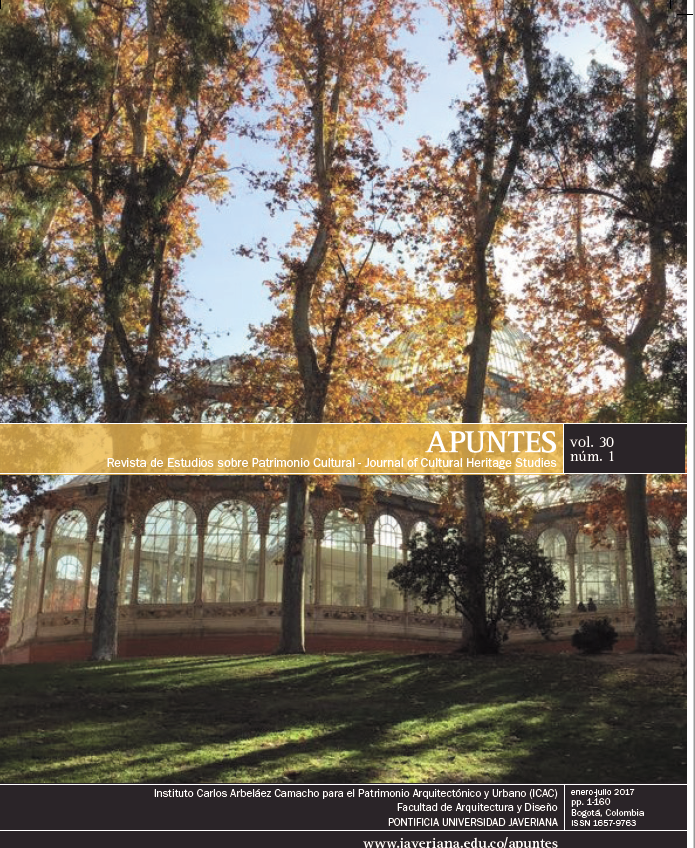Resumen
El artículo surge a partir de una reflexión sobre la relación entre patrimonio cultural inmueble y comunidades locales, y se dirige a reflexionar otras formas de acercamiento en torno al patrimonio cultural material desde una perspectiva incluyente y participativa, que responda a las características y condiciones de las poblaciones locales y su territorio; meditación que gira en torno al caso específico del contexto colombiano. Así, este se centra en aquella concepción del patrimonio que alude a un discurso hegemónico, desde el cual se han identificado, impuesto e inducido desde “afuera” los bienes culturales inmuebles, lo que no siempre resulta de un ejercicio reflexivo ni se fundamenta en el diálogo con las comunidades, en lo concerniente al significado y lo que este representa localmente. Desde este discurso se plantea que el patrimonio termina por desligarse de las relaciones con los territorios de implantación de los bienes inmuebles, y esta descontextualización se evidencia en las prácticas asociadas a los bienes, las que terminan por generar un patrimonio no apropiado, interiorizado ni afianzado y, en muchos casos, deriva en su invisibilización, destrucción y desaparición.
La revista Apuntes se encuentra registrada bajo la licencia Creative Commons Reconocimiento 4.0 Internacional. Por lo tanto, esta obra se puede reproducir, distribuir y comunicar públicamente en formato digital, siempre que se reconozca el nombre de los autores y a la Pontificia Universidad Javeriana. Se permite citar, adaptar, transformar, autoarchivar, republicar y crear a partir del material, para cualquier finalidad (incluso comercial), siempre que se reconozca adecuadamente la autoría, se proporcione un enlace a la obra original y se indique si se han realizado cambios. La Pontificia Universidad Javeriana no retiene los derechos sobre las obras publicadas y los contenidos son responsabilidad exclusiva de los autores, quienes conservan sus derechos morales, intelectuales, de privacidad y publicidad.
El aval sobre la intervención de la obra (revisión, corrección de estilo, traducción, diagramación) y su posterior divulgación se otorga mediante una licencia de uso y no a través de una cesión de derechos, lo que representa que la revista y la Pontificia Universidad Javeriana se eximen de cualquier responsabilidad que se pueda derivar de una mala práctica ética por parte de los autores. En consecuencia de la protección brindada por la licencia de uso, la revista no se encuentra en la obligación de publicar retractaciones o modificar la información ya publicada, a no ser que la errata surja del proceso de gestión editorial. La publicación de contenidos en esta revista no representa regalías para los contribuyentes.


